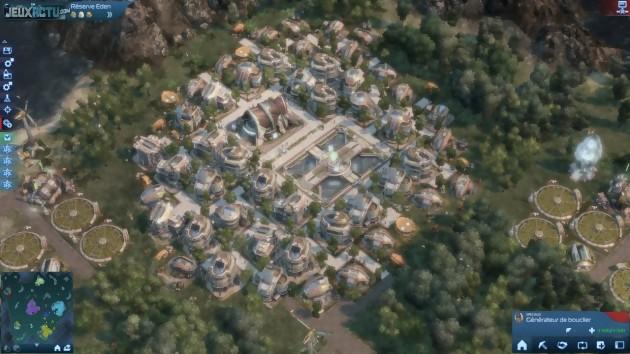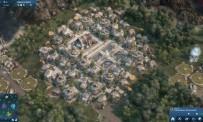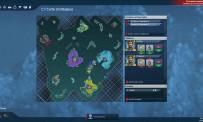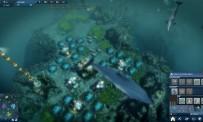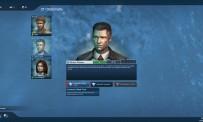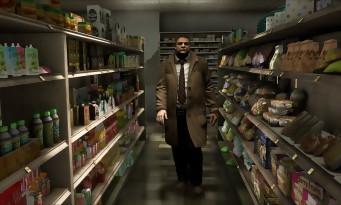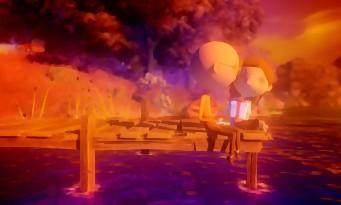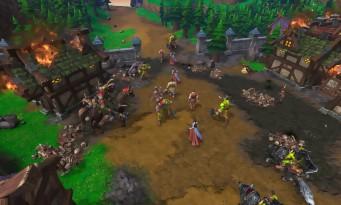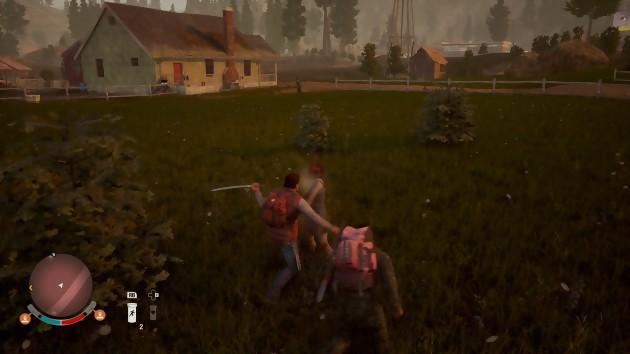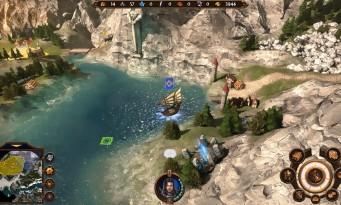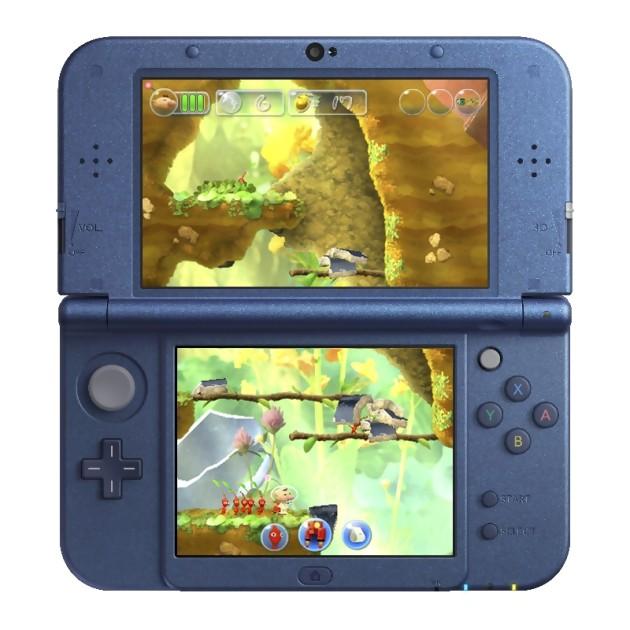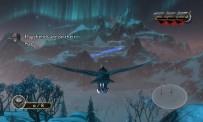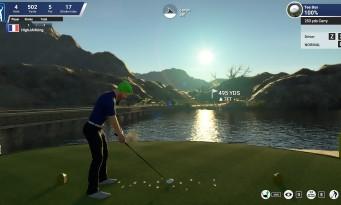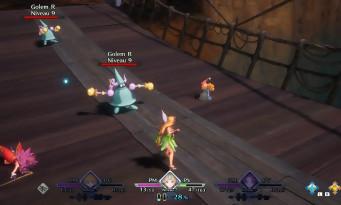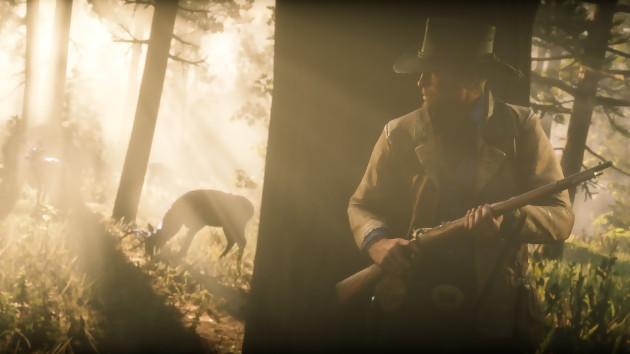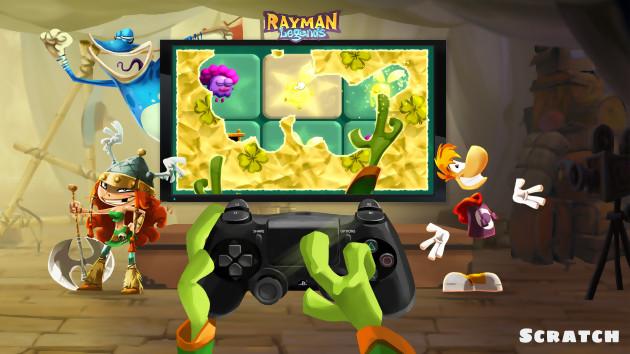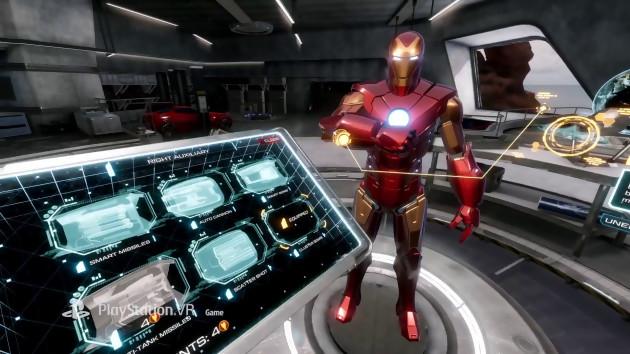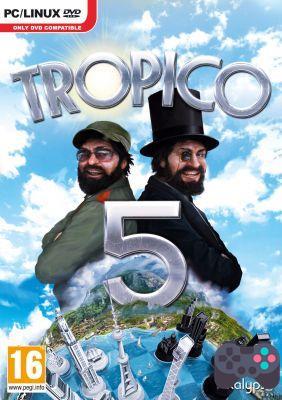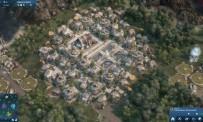 Rich, effective, addictive and joyful, the basic recipe that characterizes the Anno is back in this new episode. Concretely, it is for the player to make the best use of the natural resources made available to him on virgin islands, to establish constantly growing colonies there. If the beginnings are easy, things tend to quickly become more complex. Once the needs of the first settlers are met, they evolve into a higher, more demanding caste, which itself eventually mutates, and so on. It is therefore necessary to erect ever more buildings, develop more efficient technologies, go in search of new resources, manage taxes as well as possible, establish trade routes and diplomatic treaties, fight pirates or enemy colonizers, and take care of a thousand other little things. Accessible to all despite its great richness, could the concept be further improved? This is in any case the bet that the developers made by offering us an additional episode. Its main specificity comes naturally from the chosen period. For the first time, the series moves away from past history and gives into science fiction. So we find ourselves in 2070, after climatic upheavals have changed the geography of the world. Indeed, the rise in sea level has multiplied the number of islands and islets present on the planet. This is timely, since the game precisely uses an insular gameplay... Beyond this scriptwriting justification, the futuristic era is above all an opportunity to disorient the player. No more brave little lumberjacks, it's now robots that cut down trees. Say goodbye to log cabins, and hello to concrete and other modern building materials. They are no longer handcarts that travel from production sites to warehouses, but autonomous vehicles, sometimes flying. Change is good but, overall, the universe still seems less enchanting to us than that of the Middle Ages or the Renaissance. It is a little duller, a bit like the concerns of the time. It is no longer really a question of building a new world but rather of managing the harmful consequences of modern human activity.
Rich, effective, addictive and joyful, the basic recipe that characterizes the Anno is back in this new episode. Concretely, it is for the player to make the best use of the natural resources made available to him on virgin islands, to establish constantly growing colonies there. If the beginnings are easy, things tend to quickly become more complex. Once the needs of the first settlers are met, they evolve into a higher, more demanding caste, which itself eventually mutates, and so on. It is therefore necessary to erect ever more buildings, develop more efficient technologies, go in search of new resources, manage taxes as well as possible, establish trade routes and diplomatic treaties, fight pirates or enemy colonizers, and take care of a thousand other little things. Accessible to all despite its great richness, could the concept be further improved? This is in any case the bet that the developers made by offering us an additional episode. Its main specificity comes naturally from the chosen period. For the first time, the series moves away from past history and gives into science fiction. So we find ourselves in 2070, after climatic upheavals have changed the geography of the world. Indeed, the rise in sea level has multiplied the number of islands and islets present on the planet. This is timely, since the game precisely uses an insular gameplay... Beyond this scriptwriting justification, the futuristic era is above all an opportunity to disorient the player. No more brave little lumberjacks, it's now robots that cut down trees. Say goodbye to log cabins, and hello to concrete and other modern building materials. They are no longer handcarts that travel from production sites to warehouses, but autonomous vehicles, sometimes flying. Change is good but, overall, the universe still seems less enchanting to us than that of the Middle Ages or the Renaissance. It is a little duller, a bit like the concerns of the time. It is no longer really a question of building a new world but rather of managing the harmful consequences of modern human activity.
One Anno to rule them all
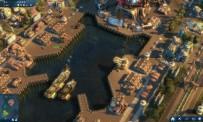 Moreover, the two main factions of the game are opposed on the question of sustainable development. The Global Trust consortium plays the role of evil capitalists. They have nothing to do with environmental concerns and pollute at all costs. Their ecological balance is therefore poor, their maximum electricity consumption, but on the other hand, the performance of their production buildings is excellent. This allows them to grow quickly, on small surfaces. Conversely, the green organization Eden Initiative has a good ecological record, but their production buildings require more space. To this must be added the subsidiary faction of the SAAT which brings together pure scientists. Each camp has specific buildings and technologies, which offers a good variety of gameplay. Better yet, it is possible to have the different factions coexist on the same island for even greater complexity. The other great innovation of Anno 2070 comes from the management of the seabed. With a stroke of the mouse wheel, you can now dive the camera below the water level. The walk is not only of aesthetic interest since submerged plateaus are just waiting to be discovered. Different structures can be set up there (underwater farm to obtain nutraceuticals, oil extraction, etc.), which strongly encourages the establishment of trade routes. The latter are easily programmed, thanks to a generally very efficient interface. We grope at the beginning to identify and differentiate at first glance the different icons, but all actions are carried out in two or three clicks.
Moreover, the two main factions of the game are opposed on the question of sustainable development. The Global Trust consortium plays the role of evil capitalists. They have nothing to do with environmental concerns and pollute at all costs. Their ecological balance is therefore poor, their maximum electricity consumption, but on the other hand, the performance of their production buildings is excellent. This allows them to grow quickly, on small surfaces. Conversely, the green organization Eden Initiative has a good ecological record, but their production buildings require more space. To this must be added the subsidiary faction of the SAAT which brings together pure scientists. Each camp has specific buildings and technologies, which offers a good variety of gameplay. Better yet, it is possible to have the different factions coexist on the same island for even greater complexity. The other great innovation of Anno 2070 comes from the management of the seabed. With a stroke of the mouse wheel, you can now dive the camera below the water level. The walk is not only of aesthetic interest since submerged plateaus are just waiting to be discovered. Different structures can be set up there (underwater farm to obtain nutraceuticals, oil extraction, etc.), which strongly encourages the establishment of trade routes. The latter are easily programmed, thanks to a generally very efficient interface. We grope at the beginning to identify and differentiate at first glance the different icons, but all actions are carried out in two or three clicks.
The other great innovation of Anno 2070 comes from the management of the seabed. With a flick of the mouse wheel, you can now dive the camera below the water level."
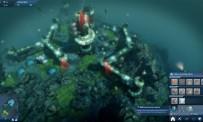 And since we are talking about the form of the game, let us note in passing that the graphic aspect is very neat. The animations are fluid and detailed while the 3D engine displays beautiful things. The only flaw to note: occasional clipping effects (sudden change in the level of detail of certain parts of the decor) when zooming in quickly. On the other hand, we may also regret the few errors in the single-player campaign, which lacks rhythm and offers mini-quests that are not always clear. It doesn't matter, because an Anno is mostly played in a continuous game (without a scenario) or in multiplayer. For worse or for better, the game uses Ubisoft's Uplay system. When the servers are unresponsive, which has happened regularly since release, or when the player's internet connection is unstable, the game automatically switches to offline mode, which deprives it of certain features. However, the latter are interesting since they require all users to vote regularly for elections to the Senate and the World Council. Depending on the successful candidate, different bonuses are applied during the games. “World affairs” are also planned in the future, but the corresponding box remains desperately grayed out for the time being. These should be single-player missions common to all players, who will act in parallel to achieve a common goal. In the meantime, we can already take advantage of “daily events”, which take the form of small missions to complete during our games. A good way, for once, to encourage players to stay permanently connected. This will not help Internet addicts, because the lifespan of the game is enormous. Dozens and dozens of hours of meticulous management await you. And, believe us, we do not see the time passing!
And since we are talking about the form of the game, let us note in passing that the graphic aspect is very neat. The animations are fluid and detailed while the 3D engine displays beautiful things. The only flaw to note: occasional clipping effects (sudden change in the level of detail of certain parts of the decor) when zooming in quickly. On the other hand, we may also regret the few errors in the single-player campaign, which lacks rhythm and offers mini-quests that are not always clear. It doesn't matter, because an Anno is mostly played in a continuous game (without a scenario) or in multiplayer. For worse or for better, the game uses Ubisoft's Uplay system. When the servers are unresponsive, which has happened regularly since release, or when the player's internet connection is unstable, the game automatically switches to offline mode, which deprives it of certain features. However, the latter are interesting since they require all users to vote regularly for elections to the Senate and the World Council. Depending on the successful candidate, different bonuses are applied during the games. “World affairs” are also planned in the future, but the corresponding box remains desperately grayed out for the time being. These should be single-player missions common to all players, who will act in parallel to achieve a common goal. In the meantime, we can already take advantage of “daily events”, which take the form of small missions to complete during our games. A good way, for once, to encourage players to stay permanently connected. This will not help Internet addicts, because the lifespan of the game is enormous. Dozens and dozens of hours of meticulous management await you. And, believe us, we do not see the time passing!
